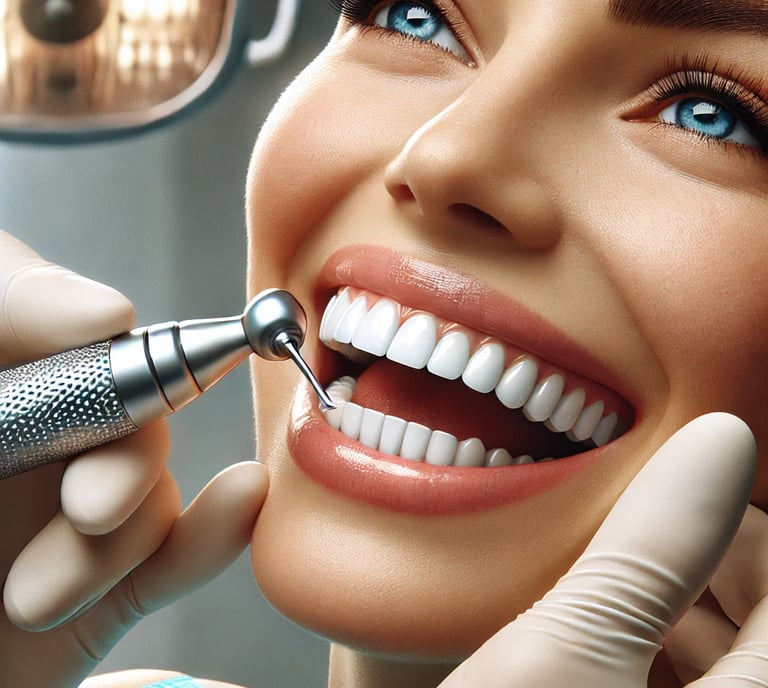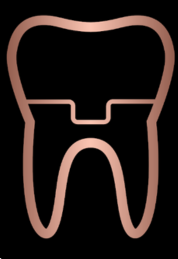Tips for Care and Maintenance of Fixed Dentures
12/8/20242 min read


Fixed dentures are a durable and aesthetic solution to restore the functionality and appearance of missing teeth. However, just like natural teeth, they require specific care to ensure their longevity and maintain good oral health. In this article, we share practical tips that you can share with your patients to keep their dentures in optimal condition for many years to come.
1. Impeccable Oral Hygiene
Fixed dentures are not as susceptible to decay as natural teeth, but the surrounding tissue, such as the gums, requires proper care to prevent periodontal disease.
Regular brushing: It is essential to brush teeth and dentures at least twice a day with a soft-bristled toothbrush.
Flossing: Recommend the use of dental floss or interdental brushes to clean the areas around dentures, especially under bridges.
Mouthwash: An antibacterial mouthwash helps reduce plaque build-up and prevent gum infections.
2. Regular Dental Visits
Regular visits to the dentist are essential to check the condition of dentures and to make sure the gums and adjacent teeth are healthy.
Professional cleanings: Regular cleanings remove plaque and tartar build-up that cannot be removed by brushing at home.
Regular check-ups: These allow early detection of problems such as denture wear, gum inflammation or incorrect fit.
3. Beware of Food
Although fixed dentures are designed to withstand the normal forces of chewing, it is important to be careful with certain foods.
Avoid hard foods: Such as nuts, hard candy or ice, which can damage the denture.
Sticky foods: Such as candy or chewing gum, which can be difficult to clean and increase the risk of plaque build-up.
Balanced diet: Recommend a diet rich in fruits, vegetables and foods that promote oral health.
4. Overnight Protection
If the patient has a habit of grinding the teeth (bruxism), it may be necessary to wear a night splint to protect both the prosthesis and the natural teeth.
Consultation with the dentist: The dentist can design a customised splint to protect the dentures and reduce wear caused by bruxism.
5. Avoid Harmful Habits
Certain habits can shorten the life of dentures. It is important to avoid:
Biting on hard objects: such as pens or fingernails.
Opening things with your teeth: This habit can damage both dentures and natural teeth.6. Use of Advanced Cleaning Devices
6. Use of Advanced Cleaning Devices
The use of specific tools can help keep dentures clean and in good condition:
Dental irrigators: These devices use pressurised water to clean hard-to-reach areas, such as around bridges or crowns.
Electric toothbrushes: They offer more efficient and thorough cleaning compared to manual brushes.
7. Recognise Signs of Problems
It is crucial that patients watch for signs that may indicate a problem with their dentures or gums:
Tenderness or pain: This may be a sign of inflammation or infection in the gums.
Denture mobility: If the fixed prosthesis feels loose, a visit to the dentist is needed immediately.
Bleeding or swelling: These indicate gum problems that should be treated to avoid further complications.
8. Consultation in Case of Doubt
Encourage open communication between the patient and the dentist. Any changes in the way the prosthesis feels or functions should be reported immediately.
Conclusion
Proper care of fixed dentures is key to ensuring their long-term functionality, durability and aesthetics. Sharing these tips with your patients will help them maintain good oral health and enjoy their dentures for many years to come.
At VICTOR ARPA LABS, we specialise in customised dental prostheses and are committed to providing solutions that improve the quality of life of our patients.


